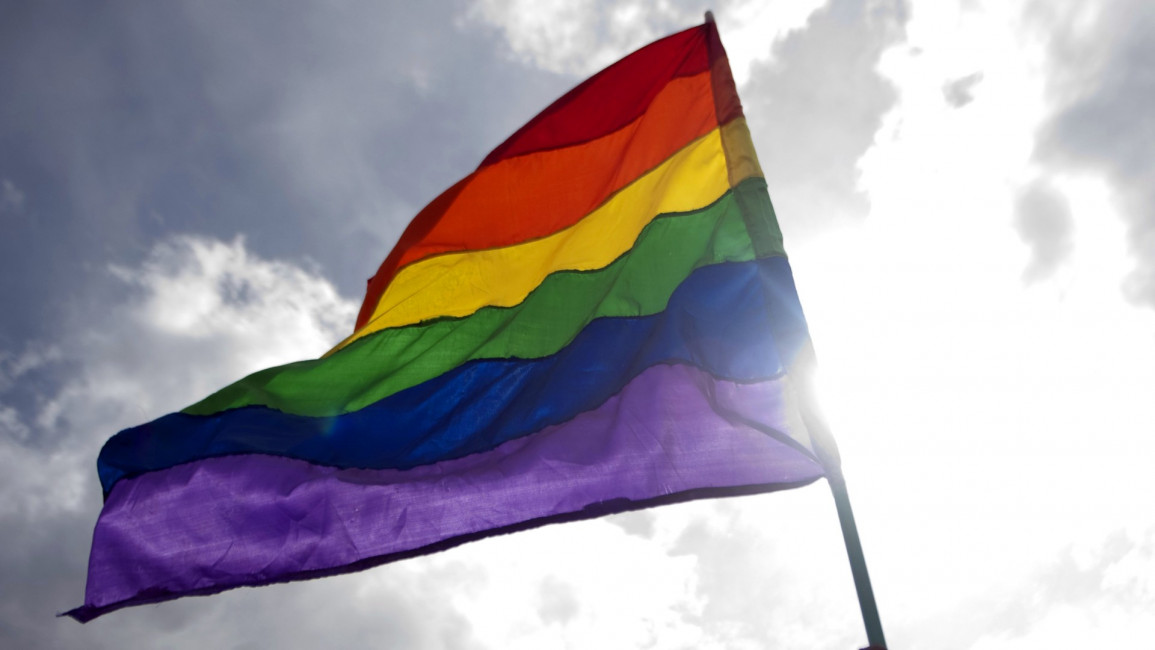Egypt has released new bank note that contains 'rainbow pride colours' and people are freaking out
Newly printed 10 and 20 Egyptian pound banknotes caused uproar in Egypt on Monday after the Central Bank printed a multi-coloured watermark that appeared to depict the colours of the LGBTQ+ Pride flag.
A sample of the new polymer plastic 20 pound banknote, looks to show rainbow spectrum on its watermark, sparking a social media frenzy and calls for boycott in Egypt's conservative society.
The 10 pound note sample also received criticism for depicting an image of the newly-built Al-Fattah Al-Aleem mosque, which was inaugurated in 2019 by Egyptian President Abdel Fattah Al-Sisi.
One outraged Twitter user said: "Twenty pounds with the gay flag on it and 10 pound notes with Abdel Fattah El Sisi's mosque on it, when we have hundreds of other prominent mosques and historical monuments!"
Another said: "This is a great scandal and a sin! The government/central bank/relevant ministries are responsible for this shameful act of placing an image of the gay flag on a mosque on our national currency note! They must correct it and issue an apology!"
كده كملت وظهرت الحقيقه
— Fareg Alkagy (@Fareg_Alkagy) August 1, 2021
علم المثليين علي ال ٢٠ جنيه الجديده وملفوف علي مسجد محمد علي!!! pic.twitter.com/v5BN0GLZFd
In response to widespread criticism on social media, an official in the Central Bank told Middle East News Agency that the banknote models were "preliminary" and subject to change, ahead of their November release.
Although homosexuality is not criminalised by law in Egypt, the country's conservative society deems homosexual acts, ideas, and symbols as "immoral".
According to 2013 survey by the Pew Research Center, 95 percent of Egyptians believe that homosexuality should not be accepted by society.
The rainbow flag itself, a symbol of LGBTQ+ pride, has caused controversy in the country.
In 2017, a number of Egyptians raised the flag during a concert by the Lebanese band Mashrou' Leila in Cairo.
Images that circulated online shortly after the concert sparked controversy and incitement against Egypt's LGBTQ+ community, with many calling for the punishment of those who raised the flag.
Subsequently, authorities began a wave of arrests against those who raised the flag as well as individuals perceived to belong to the LGBTQ+ community.
Between 25 September and the end of November 2017, at least 84 people were arrested and many of them were subjected to humiliating forced anal examinations.
The crackdown, together with the Egyptian media uproar, resulted in a state of trauma and despair among young Egyptian LGBTQ+ community.
In June 2020, Egyptian gay activist woman, Sarah Hegazi, who waved the rainbow flag at a concert in Cairo in 2017, died by suicide, after she was arrested, tortured, and released.


![President Pezeshkian has denounced Israel's attacks on Lebanon [Getty]](/sites/default/files/styles/image_684x385/public/2173482924.jpeg?h=a5f2f23a&itok=q3evVtko)



 Follow the Middle East's top stories in English at The New Arab on Google News
Follow the Middle East's top stories in English at The New Arab on Google News


